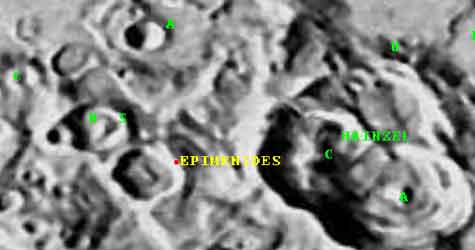.

Epimenides of Knossos, semi-mythical 6th century BC Greek seer and philosopher-poet
Epimenides of Knossos (Crete) ( Επιμενίδης ο Κρης ) was a semi-mythical 6th century BC Greek seer and philosopher-poet, who is said to have fallen asleep for fifty-seven years in a Cretan cave sacred to Zeus, after which he reportedly awoke with the gift of prophecy.
Plutarch writes in his Life of Solon that Epimenides purified Athens after the pollution brought by the Alcmeonidae, and that the seer's expertise in sacrifices and reform of funeral practices were of great help to Solon is his reform of the Athenian state. Diogenes Laertius preserves a number of spurious letters between Epimenides and Solon in his Lives of the Philosophers. Epimenides was also said to have prophesied at Sparta on military matters.
Pausanias reports that when Epimenides died, his skin was found to be covered with tattooed writing. This was considered odd, because the Greeks reserved tatooing for slaves. Some modern scholars have seen this as evidence that Epimenides was heir to the shamanic religions of Central Asia, because tattooing is often associated with shamanic initiation. The skin of Epimenides was preserved at the courts of the ephores in Sparta, conceivably as a good-luck charm.
Several prose and poetic works, now lost, were attributed to Epimenides by the Suda, including a theogony, oracles, a work on the laws of Crete, and a treatise on Minos and Rhadymanthus.
Epimenides' poem Cretica is quoted twice in the New Testament. In the poem, Minos addresses Zeus thus:
They fashioned a tomb for thee, O holy and high one—
The Cretans, always liars, evil beasts, idle bellies!
But thou art not dead: thou livest and abidest forever,
For in thee we live and move and have our being.
The "lie" of the Cretans is that Zeus was mortal; Epimenides considered Zeus immortal. The second line is quoted, with a veiled attribution ("a prophet of their own"), in the Epistle to Titus, chapter 1, verse 12, to warn Titus about the Cretans. "Cretans, always liars", with the same theological intent as Epimenides, also appears in the Hymn to Zeus of Callimachus. The fourth line is quoted without attribution in the Acts of the Apostles, chapter 17, verse 28.
The "prophet" in Titus 1:12 is identified by Clement of Alexandria as Epimenides (Miscellanies, chapter 14). In this passage, Clement mentions that "some say" Epimenides should be counted among the seven wisest philosophers.
It is not clear when Epimenides became associated with the Epimenides paradox, a variation of the liar paradox. Epimenides himself does not appear to have intended any irony or paradox in his statement, "Cretans, always liars", nor did Callimachus, nor the author of Titus, nor Clement. In the Middle Ages, many forms of the liar paradox were studied under the heading of insolubilia, but these were not associated with Epimenides. The earliest unmistakable reference to the Epimenides paradox as it is known today is an article by Bertrand Russell on the theory of types dating to 1908.

Greeks:
A - B - C - D - E - F - G - H - I - J - K - L - M -
N - O - P - Q - R - S - T - U - V - W - X - Y - Z
| Ancient Greece
Science, Technology , Medicine , Warfare, , Biographies , Life , Cities/Places/Maps , Arts , Literature , Philosophy ,Olympics, Mythology , History , Images Medieval Greece / Byzantine Empire Science, Technology, Arts, , Warfare , Literature, Biographies, Icons, History Modern Greece Cities, Islands, Regions, Fauna/Flora ,Biographies , History , Warfare, Science/Technology, Literature, Music , Arts , Film/Actors , Sport , Fashion --- |
Retrieved from "http://en.wikipedia.org"
All text is available under the terms of the GNU Free Documentation License

